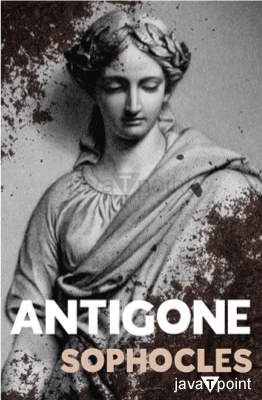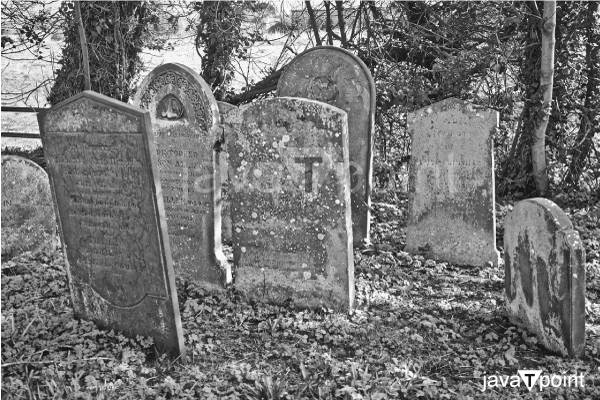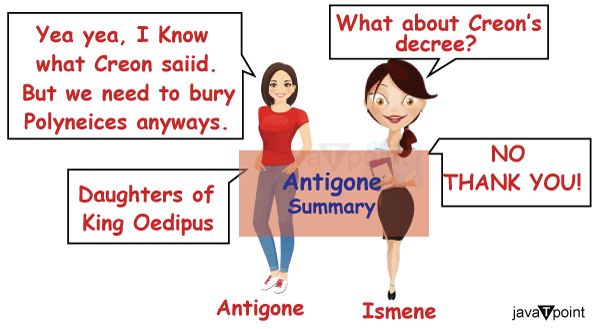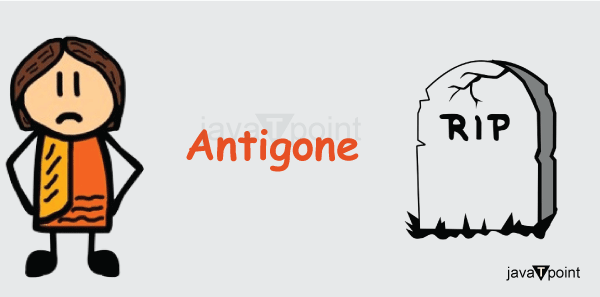Antigone SummaryThe start of Sophocles synopsis of "Antigone" establishes the play's setting and gives crucial background information. It introduces the main characters and the main conflict of the story. The play's themes and the historical or cultural setting in which it was created may also be discussed in the introduction. Sophocles play "Antigone" examines such timeless ideas as moral obligation, loyalty, and the conflict between morality and legality. The drama takes place in Thebes during a civil war in which two brothers named Eteocles and Polyneices killed one another in a bid for the crown. As the new monarch, their uncle Creon proclaims a law that accords Eteocles with a proper funeral but forgoes any funeral rites for Polyneices, leaving his body to be eaten by scavengers. 
Eteocles and Polyneices sister, Antigone, is the main character. She violates Creon's order and chooses to bury her brother Polyneices herself despite the possibility of facing harsh punishment because of her genuine love for her family and her unwavering adherence to divine law. Due to Antigone's activities, she and Creon engage in conflict, and a chain of sad occurrences results in a great sense of sorrow and introspection. The play's investigation of moral quandaries, the effects of human decisions, and the conflict between personal autonomy and governmental authority are set out in the beginning. It draws attention to the conflict between the laws of the gods and the laws of mortals and the catastrophic consequences of strict dedication to power and pride. Overall, the introduction piques the reader's or viewer's interest in the themes and characters of "Antigone" and acts as a prologue to the dramatic events in the play. Context and HistoryUnderstanding the historical and cultural circumstances surrounding Sophocles' play "Antigone" requires knowledge of background and context. Around 441 BCE, the drama was first composed and performed in ancient Greece, most notably in Athens. It is crucial to take into account the following factors to understand the relevance of "Antigone completely": 1. Greek TragedyThe play "Antigone" is categorized as a Greek tragedy, a genre that was revered and frequently performed in ancient Greece. During religious celebrations like the Dionysia, tragedies were played. They addressed important issues and stirred up sympathy and horror in the audience. 2. The Theban Cycle"Antigone" is a play component of a wider cycle called the Theban Plays. Three plays by Sophocles make up this cycle: "Oedipus Rex," "Oedipus at Colonus," and "Antigone." The tragic fall of the House of Thebes, emphasizing the descendants of King Oedipus, is the subject of these plays, which share a common theme. 3. Mythological BackgroundGreek mythology serves as the foundation for the "Antigone" story. Oedipus and Jocasta, who were mother and son but unknowingly married and had children together, are the parents of Antigone. Oedipus' unintentional deeds lead to a curse that has far-reaching effects on his family. 4. Athenian Democracy"Antigone" was written when Athens' democratic experiment was most advanced. The conflict between human conscience and state authority is examined in the drama. Creon's control over Thebes signifies the exercise of governmental authority, but Antigone's defiance symbolizes the fight for individual liberty and autonomy. 5. Sophoclean ThemesThe playwright Sophocles was renowned for delving deeply into moral and ethical themes in his writings. The tension between divine and human law, the essence of justice, and other issues are all raised in the play "Antigone". The play "Antigone" poses issues about the clash between divine and human law, the definition of justice, and the effects of arrogance and obstinance. These ideas were very important to the ancient Greeks, and audiences still find them compelling today. Knowing the history and setting of "Antigone" can help us better understand the social, political, and philosophical environment in which the play was written. It allows viewers and readers to understand the play's deeper meanings, critique cultural conventions, and timeless relevance. 
Antigone's DecisionSophocles establishes Antigone's steadfast loyalty to her family and religious beliefs in the prologue to "Antigone," demonstrating her unwavering will and resolve. The prologue introduces Antigone's persona and lays the groundwork for the forthcoming battles. In defiance of her uncle King Creon's order, Antigone declares in the play's opening scene that she will honour her brother Polyneices by providing him with a suitable burial. Polyneices, who fought for Thebes, will be left unburied and dishonoured, and Creon has issued a dire warning to anyone who disobeys. Antigone is stubborn because she has a strong sense of familial obligation and believes in the gods' sacred laws. She fervently contends that the importance of family ties and the divine law of funeral customs outweighs any ruling a human being makes. Regardless of the repercussions, Antigone views herself as a servant of the gods who must perform her brother's funeral rites. Antigone establishes herself as a figure prepared to put her life in danger and rejects governmental authorities to defend her values via her unflinching tenacity. Her acts are a perfect example of the struggle between one's conscience and the law and the strength of one's convictions in the face of repressive authority. Antigone's character is established in the prologue, which also predicts the tensions arising as she resists Creon's order. It sets up the major struggle between Antigone and Creon. It poses issues with the nature of justice, the bounds of power, and the place of personal action in a democratic society. Antigone's resolve in the prologue paves the way for the subsequent catastrophe because her unyielding adherence to her convictions will trigger a chain of events that will have profound repercussions for her and those around her. Ismene and Antigone ConflictThe tension between Antigone and her sister Ismene is revealed in Sophocles' play "Antigone" as they debate whether or not to reject Creon's order and bury their brother Polyneices. Ismene arrives after Antigone declares her unshakeable resolve to give Polyneices a suitable funeral in the prologue. Ismene is cautious and worried about the repercussions of disobeying Creon's commandment, in contrast to her sister. She begs Antigone to change her mind, highlighting the pointlessness of their efforts and the hopelessness of opposing the government. 
Antigone chastises Ismene for her hesitation and is called weak and passive by the latter, who is motivated by a strong sense of duty and loyalty. According to Antigone, familial connections and the holy requirements of funeral rites should take precedence over a mortal ruler's orders. Ismene is begged to join her in the act of disobedience but declines out of worry for their safety. The fight between Antigone and Ismene shows their divergent perspectives on defying authority and methods for doing so. Ismene portrays caution, practicality, and a desire to avoid excessive danger, while Antigone represents revolt, personal conviction, and a willingness to sacrifice her values. Important philosophical issues about the definitions of loyalty, obedience, and the boundaries of familial ties are also raised by this argument. Antigone's unwavering commitment to the burial shows her loyalty to her family and her conviction in the stricter moral and religious norms. On the other hand, Ismene places a higher value on adhering to social rules and ensuring one's survival. 
Ismene's choice to abstain from the act of defiance ultimately leaves Antigone to bear the repercussions herself. The dispute between the sisters foreshadows the greater conflict between Antigone and Creon by illuminating the difficult decisions people are forced to make when dealing with competing loyalties and the use of authority. When Antigone's tenacity conflicts with Creon's authority, tragic events result. The confrontation between Antigone and Ismene demonstrates the tension between individual conviction and social expectations. The Interment of PolynesiansA crucial moment in Sophocles' play "Antigone" is when Creon orders Polyneices to be buried. The confrontation between divine and human law and the abuse of authority is highlighted as it sets the stage for the main conflict between Antigone and Creon. Creon, the new king of Thebes, declares that Polyneices, who opposed the city and perished in the civil war, shall not be buried and will be dishonoured. The consequences of disobeying this order are severe and could even result in death. The order issued by Creon is an assertion of his authority and an effort to seize control of the city. Creon defends his decision by claiming that Polyneices betrayed Thebes and is unworthy of a dignified funeral. He thinks commemorating him will jeopardize the state's stability and set a bad precedent. Creon views himself as the personification of the city's laws and regards deference to his orders as of the utmost importance. Antigone, however, fiercely disagrees with Creon's decision. She contends that the laws of the gods, which call for suitable funeral ceremonies for everyone, supersede those of mortals. According to Antigone, refusing to bury her brother is a violation of both familial and heavenly obligations. She considers Creon's decision to be against both moral and religious standards. 
The conflict between Creon's power and Antigone's unshakeable commitment to performing the funeral rites is set up by Creon's order. It calls into question the nature of justice, the bounds of political authority, and the tension between individual conscience and governmental expectations. The decree also acts as a springboard for the play's study of more general themes, including the misuse of authority, the effects of arrogance and stubbornness, and human hubris. Creon's decree is a cautionary tale about the perils of unfettered power and the possibility of tragedy when one's personal views conflict with a king's. The major conflict of the play is established by Creon's order concerning Polyneices' burial, which encourages Antigone's rebellion and lays the groundwork for the tragic events that will take place as the struggle between individual conviction and authoritarian control reaches its deadly culmination. Burial of PolynesiansWhen Antigone chooses to carry out the burial of her brother Polyneices in "Antigone" by Sophocles, she defies Creon's order and risks serious repercussions. Her disobedience shows how steadfastly she is devoted to her family, religion, and sense of justice. Antigone is committed to honouring Polyneices by giving him a dignified burial, despite the dangers involved. She feels that depriving him of this essential rite violates familial obligations and divine law. Antigone sees the gods as her masters and regards their laws as having more weight than those of mortal tyrants like Creon. 
Strong moral convictions and the steadfast conviction that her actions align with a higher truth propel Antigone's resistance. She will stand up for what she thinks is right, even if it means facing the consequences, including death. Antigone secretly carries out Polyneices' funeral rites, symbolically disobeying Creon's command and demonstrating her steadfast devotion to her brother. In addition to questioning Creon's authority, her action declares her agency and autonomy in the face of oppressive power. The drama explores the limitations of political authority and the conflict between individual conscience and the needs of the state. Antigone's resistance serves as a symbol for this larger issue. It calls into question the nature of justice and the obligation of every person to follow moral standards, even in the face of dire repercussions. Antigone is ultimately detained and questioned by Creon's guards due to her rebellion and burial of Polyneices. Her actions, however, precipitated a chain of sad occurrences that cast doubt on the governing power's authority and judgment and posed significant issues regarding the nature of justice and evil. Antigone's disobedience in burying Polyneices is a potent example of her enduring bravery, tenacity, and dedication to her principles. It advances the story and paves the way for further conflicts and outcomes that will play out as the play goes on. The Capture and Questioning of AntigoneFollowing Antigone's rebellion in burying her brother Polyneices, Creon's guards take her into custody and question her. This crucial section of Sophocles' "Antigone" play exemplifies the conflict between Antigone's unshakeable conviction and Creon's ruthless control. Antigone is captured by Creon's men when they find Polyneices' grave and take her before him for interrogation. Antigone blatantly admits to the crime, refusing to back down or express regret. Despite Creon's order, she adamantly states that she adheres to the greater laws of the gods and the holy obligation of burying family members. Antigone is accused of treason and disobedience by Creon, incensed by her resistance and refusal to submit to his rule. He insists on strict compliance with his orders and emphasizes his authority as the king of Thebes. Creon views Antigone's activities as challenging his authority and dangerous to the country's peace. Antigone maintains her unwavering resolve throughout the interrogation. She makes the case that Creon's ruling opposes their society's revered customs and the dictates of the gods. According to Antigone, her acts were motivated by a greater sense of justice and familial responsibility that took precedence over the orders of a mortal king. The scene of Antigone being detained and questioned illustrates the tension between Creon's autocratic power and her steadfast adherence to her moral standards. It poses difficult concerns regarding the boundaries of governmental authority, people's freedom to exercise their conscience, and the effects of repressive government. The situation is made more challenging when Creon's son, Haemon, begs for Antigone's freedom during the interrogation. As he tries to persuade his father to show mercy and soften his severe stance, Haemon's intervention adds a new layer of tension. The detention and questioning of Antigone enhance the investigation of themes like the conflict between divine and human law, authority abuse, and the fight between individual freedom and social responsibility. As the battle between Antigone and Creon increases and tragic consequences materialize, it signifies a turning point in the play.
Next TopicBholi Summary Class 10 English
|
 For Videos Join Our Youtube Channel: Join Now
For Videos Join Our Youtube Channel: Join Now
Feedback
- Send your Feedback to [email protected]
Help Others, Please Share









